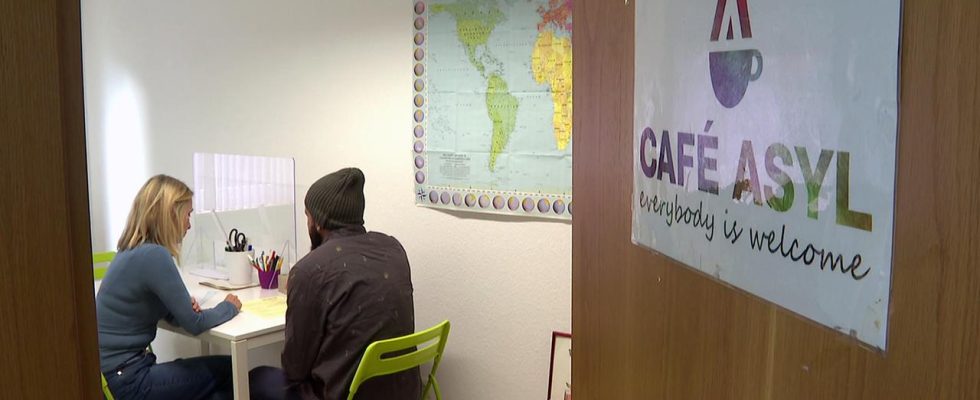According to a survey, many municipalities are overburdened with accepting refugees. Volunteers also feel this – and are frustrated.
“Everybody is welcome” – everyone is welcome, that’s what it says on the door of the “Café Asyl” in Landau. Here, in the association’s office, Magdalena Schwarzmüller has already helped several hundred refugees, as she says. Schwarzmüller has been advising asylum seekers coming to the city in Rhineland-Palatinate for 30 years. She helps with filling out forms, finding accommodation and dealing with authorities.
Even if everyone is welcome in the “Café Asylum”, it is becoming increasingly difficult to actually help everyone. “I’m now frustrated because it’s clear that we can no longer provide for the number of people,” says Schwarzmüller. “I see more and more desperate people standing in front of me.”
An example: the topic of housing. For a long time, the city tried to accommodate the refugees in apartments in a decentralized manner, i.e. spread across the city. That worked well for a while, says Schwarzmüller. A collective accommodation has now been set up. Other living space is hardly available. “I know of one case where there are 800 people on the waiting list for an apartment.” The capacity in the city: exhausted.
Magdalena Schwarzmüller has been active in helping refugees for many years.
40 percent of municipalities overloaded
This is now the case in almost half of German municipalities, according to a current survey by the University of Hildesheim and the Integration Media Service. 40 percent of municipalities see themselves as overburdened; Almost 60 percent describe the situation as “challenging, but (still) doable”. The municipalities describe limiting immigration, better financing and support in the construction and purchase of accommodation as helpful in dealing with the situation.
“A large number of cities and municipalities have long since exceeded the performance limit in terms of accommodation, supply and integration. At the same time, the number of immigrants continues to rise and, accordingly, so do the costs,” says Gerd Landsberg, general manager of the German Association of Cities and Municipalities.
The federal and state governments would have to ensure financing, for example for integration and language courses. In the current situation, not only many municipalities but also the volunteers are “at their limits,” says Landsberg. “It is necessary to strengthen the voluntary support structures and also support the offers financially.”
It’s not just money that’s missing
Magdalena Schwarzmüller’s association is mainly financed through donations, but the financial situation is currently extremely difficult. But even with better financial resources, difficulties remained that they could hardly help with. “There are massive problems with mental illness, people who slip into drug and alcohol addiction,” she reports.
But the volunteer also addresses another, completely different problem: the “demanding attitude” of individuals. “We see people who accept everything, but they are not willing to work or attend a language course here. These are isolated cases, but unfortunately these individual cases are also increasing.” It is important to talk openly about this too.
“Federal politicians don’t listen enough”
Federal politics doesn’t listen enough to the people at the grassroots level, people like you, says Magdalena Schwarzmüller. She herself is deputy parliamentary group leader of the SPD in the Landau city council. For Schwarzmüller, the Federal Cabinet’s decision that asylum seekers should be allowed to work after six months instead of nine in the future is not expedient.
According to the volunteer, this is hardly possible without knowledge of the language. The decision brings little improvement in practice. Integration: a long-term task; There are no easy solutions in the current situation. “What I miss most is the honesty to say that we have a problem,” says Schwarzmüller.
The helper says it is all the more important not to lose sight of the successes of voluntary work in everyday life: asylum seekers who have learned German and found work thanks to the support of the “Café Asyl”. After all, there are quite a few of them. And that motivates her to keep going – despite everything.

